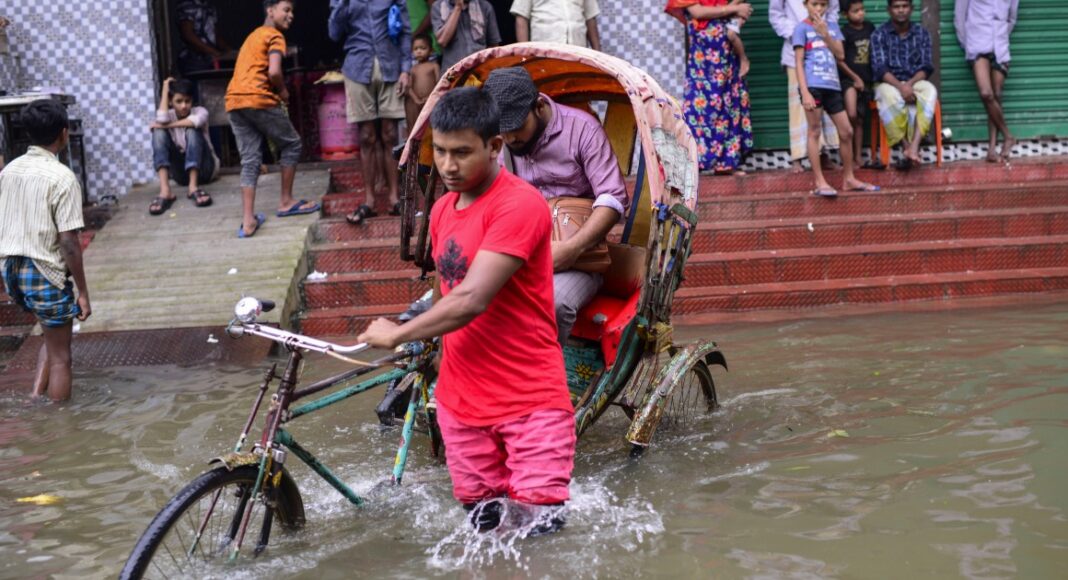Floods in Bangladesh continue to wreak havoc, with the authorities struggling to ferry drinking water and dry food to flood shelters across the country’s vast northern and northeastern regions, officials and local media say.
More than a dozen people have died across the country since heavy monsoon rains began last week, authorities said. The government called in soldiers on Friday to help evacuate people to safety.
Enamur Rahman, junior minister for disaster and relief, said up to 100,000 people have been evacuated in the worst-hit Sunamganj and Sylhet districts, and about four million people have been marooned in the area, the United News of Bangladesh agency reported.
Officials said water has started receding from the northeastern region but is posing a threat to the country’s central region, the pathway for flood waters to reach the Bay of Bengal in the south.
Media reports said those affected by flooding in remote areas are struggling to access drinking water and food.
In a posted online, Arinjoy Dhar, a senior director of the nonprofit developmental organisation BRAC, asked for help ensuring food for the flood-affected people.
Dhar said they opened a centre on Monday to prepare food items as part of a plan to feed 5,000 families in Sunamganj, but the arrangement was not enough.
BRAC said it alone was trying to reach out to about 52,000 families with emergency supplies.
The latest floods have devastated Bangladesh just as it began recovering from a flash flood last month that was triggered by a rush of water from upstream in India’s northeastern states, destroying crops and damaging homes and roads.
Bangladesh, a nation of 160 million people, is low-lying and faces threats from natural disasters such as floods and cyclones, made worse by climate change. According to the United Nations’ Intergovernmental Panel on Climate Change, about 17 percent of people in Bangladesh would need to be relocated over the next decade or so if global warming persists at the present rate.



